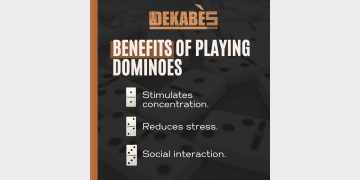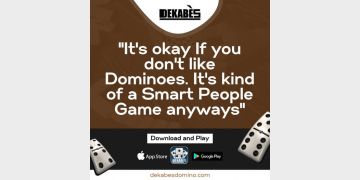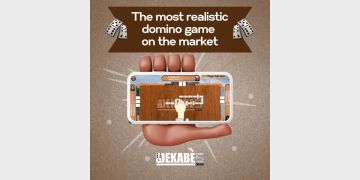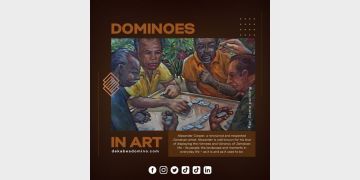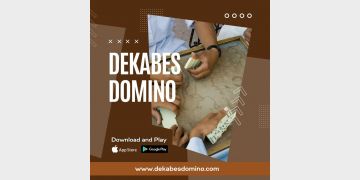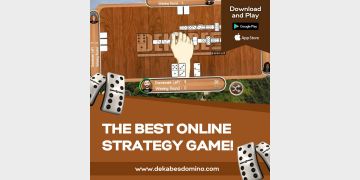How to Play Dominoes Caribbean Island Style (Haiti)
Published on: 25 Aug 2022
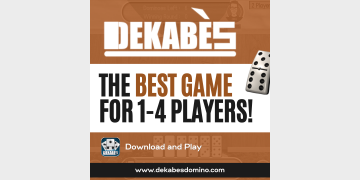
In the Caribbean, we have 6 different ways to play
dominoes—learn how we play this fun and competitive game.
Dominoes
has been a popular game around the world for years, but it is particularly
popular in the Caribbean. This game, available as Dekabès Domino and other
variations, comes with unique rules that make the game even more challenging
and fun. If you are looking to play your game of dominoes the right way, read
on to learn how this game is played by friends, family, and professionals
alike!
Setting
Up Caribbean Style Dominoes
The
way that you deal your dominoes can vary depending on how many players are
involved. There are 6 modes of the game in total. Dominoes are shuffled and
presented facedown during the drawing phase.
For
2 players, the game can either be played with 7 dominoes (7 dominoes draw game)
or with 7 or 14 dominoes (block game). For a draw game, the remaining dominoes
will be placed into the boneyard for drawing. Block games do not have
boneyards. After each player picks up 7 dominoes, the remaining dominoes are
removed.
When
playing with 3 players, the double blank (double zero) domino is removed, and
players receive 9 dominoes a piece.
For
4 players, which is the maximum number of players, everyone receives 7
dominoes. This is considered the cutthroat version. In the partner version of
this game, players are separated into partners or “teams” during play, with
each partner sitting face-to-face.
Steps
to Play the Game
Playing
the game is simple. Taking turns in a counterclockwise direction, everyone must
add to one of the existing ends of the line of dominoes. This is done by
playing a domino side that matches the end of the existing dominoes. If players
do not have a domino that fits, they must draw from the boneyard. If there is
no boneyard, they will pass on their turn.
Deciding
on a Winner
In
dominoes, you win by playing the last domino in your hand. If your last domino
is not a double and can be played on both sides of the table, you have made a
dekabès. In Puerto Rico, a dekabès is called a capicú. With a traditional win,
you will receive 1 point. With a dekabès, you receive 2 points.
If
there is no additional move that any player can make, the game will also end. When
the game ends where no player can play, the game is locked. At this point, the
player with the lowest points wins. In the event of a tie, a tie round begins.
The tie round will start with the person who started the previous round and
whoever wins gets 2 points instead of 1. If a tie round ends with a dekabès, 4
points is awarded, creating a direct winner.
In
Jamaica, the game is played the same way, but there is another form of dekabès
called key. Double six dominoes have 7 digits in total, ranging from 0
to 6. A hard end occurs when there is only one domino with a specific
digit that is not on the table in play, causing the domino number to appear 6
times but not yet 7. If both sides of the table are a hard end and someone can
play their final domino on both sides, it is considered a key. You
cannot make a key with a double.
In
most cases, each win is considered worthy of 1 point. The game is replayed
until someone manages to obtain 4 points consecutively in total for the win.
Every time someone loses a round, their number of points resets to zero.
Making
the Game Your Own
Dominoes
can vary significantly from one location to the next—and it is common to use
house rules too. You can technically change the number of total points to win
the game or make any variation that you prefer, but it will not be considered
the “true style” when you play.
The
Takeaway
We
made Dekabès Dominoes to provide everyone with the ability to enjoy dominoes
the way that it is played in prominent Caribbean spaces. It is also played in other
unique ways around the world—including the Middle East and Africa. If you are
looking for the opportunity to learn how to play dominoes, don’t hesitate to
download our app in the App Store or Google Play store and start playing today.
Find us on Facebook, Instagram, Twitter, TikTok, Youtube and LinkedIn!
